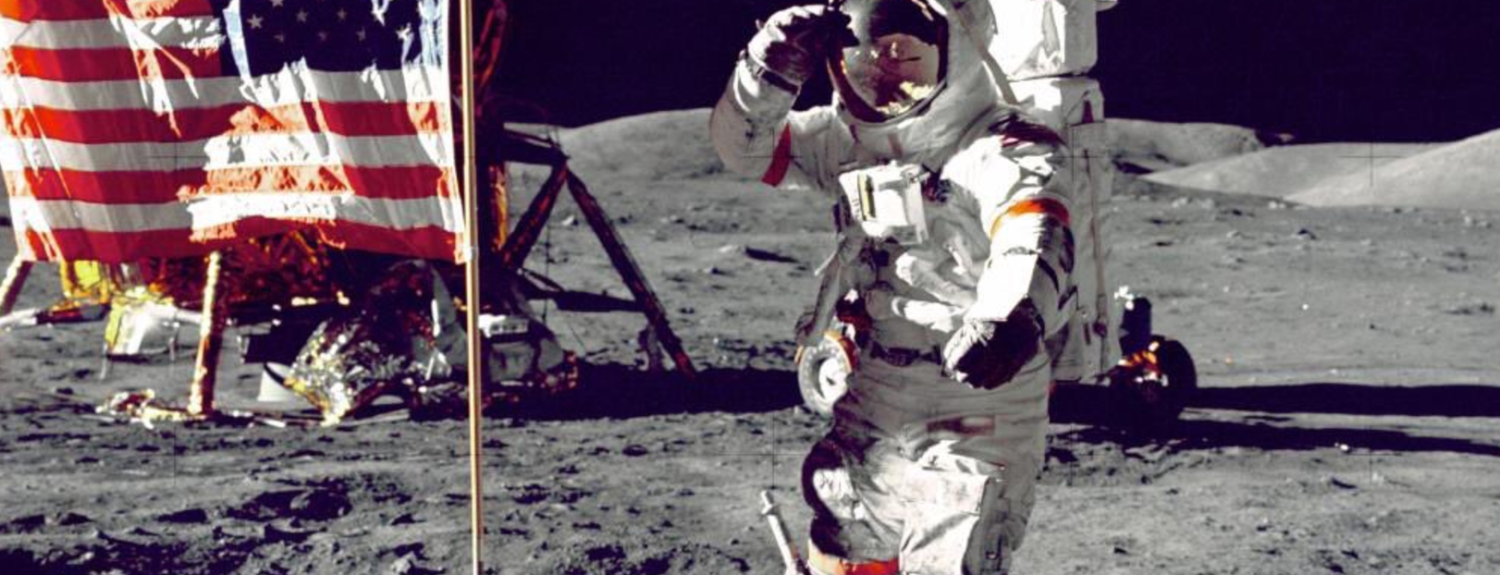Walk up to any American on the street and ask them who the first man on the moon was, and chances are they’ll come up with the correct response: Neil Armstrong. But ask the same question with one word changed, “first” to “last”, and most likely, they’ll be stumped.
In 1972, Apollo 17 commander Gene Cernan walked on the surface of Earth’s only natural permanent satellite, planting the American flag on its landscape after carving the initials of his daughter into its gray dust. He then said the following words:
As I take man’s last step from the surface, back home for some time to come — but we believe not too long into the future — I’d like to just [say] what I believe history will record. That America’s challenge of today has forged man’s destiny of tomorrow. And, as we leave the Moon of Taurus — Littrow, we leave as we came and, God willing, as we shall return, with peace and hope for all mankind. Godspeed the crew of Apollo 17.
No human has taken a stroll on the Moon since.
On Monday, the former astronaut — who flew fighters in the United States Navy — passed away at his home in Texas, surrounded by loved ones. He was 82.
In all, Cernan spent 566 hours and 15 minutes in space, and more than 72 hours strolling and not strolling, on the moon.
“I can always walk on Main Street again, but I can never return to my Valley of Taurus-Littrow, and that cold fact has left me with a yearning restlessness,” he once wrote.
“It was perhaps the brightest moment of my life, and I can’t go back. Enriched by a singular event that is larger than life, I no longer have the luxury of being ordinary.”
“That’s where you experience the most quiet moment a human being can experience in his lifetime. There’s no vibration. There’s no noise. The ground quit talking. Your partner is mesmerized. He can’t say anything.”
“In that whole three days, I don’t think there’s anything that became routine, but if I had to focus on one thing … it was just to look back at the overwhelming and overpowering beauty of this Earth.”
Gene Cernan, the last man to walk on the moon, passed away today. We reflect on his life and legacy: https://t.co/U0HrTZo0iX pic.twitter.com/JtgCCQImrM
— NASA (@NASA) January 17, 2017
In the decades after his monumental trip, Cernan became one of the most outspoken former astronauts, regularly pleading with leaders and everyday Americans alike to send more humans to outer space.
“Too many years have passed for me to still be the last man to have left his footprints on the Moon. I believe with all my heart that somewhere out there is a young boy or girl with indomitable will and courage who will lift that dubious distinction from my shoulders and take us back where we belong. Let us give that dream a chance.”
Friend and fellow spaceman Buzz Aldrin reflected on the passing of the Navy vet.
“Gene was probably the strongest spokesman for lunar travel and advocating a return to the moon,” he posted.
I lost another friend today and the world lost another hero. #RIPGeneCernan Here's my statement about Gene's passing https://t.co/cJm8Qg6kRe pic.twitter.com/N0vMbyfvRL
— Dr. Buzz Aldrin (@TheRealBuzz) January 17, 2017
“Curiosity is the essence of human existence. Who are we? Where are we? What do we come from? Where are we going? Was there life on Mars? Is Mars like Earth is going to look in a billion years? Are we what Mars looked like a billion years ago. I don’t know. I don’t have any answers to those questions. I don’t know what’s over there and around the corner. But I want to find out,” wrote Cernan.
His footprints are still, to this day and more than 40 years later, visible on the surface of that big, glowing white crater we can see nearly every day, in our night’s sky.
Veteran Marine Pilot & Legendary Astronaut John Glenn Dead at 95




































